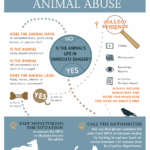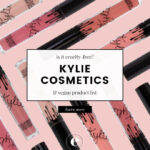In the intricate tapestry of the cosmetic industry, few brands have garnered as much attention and scrutiny as BECCA. Known for its shimmering highlighters and thoughtful range of foundations, BECCA once stood as a beacon of promise for beauty enthusiasts seeking products that aligned with ethical values. However, the acquisition of BECCA by Estée Lauder ignited a fervent discourse regarding the brand’s commitment to animal welfare. Consumers frequently grapple with the question: is BECCA still cruelty-free? To comprehend the contours surrounding this inquiry, one must delve into the complexities of corporate acquisitions, shifting ethical paradigms, and ultimately, the fate of an adored brand.
BECCA Cosmetics initially emerged as a champion of cruelty-free practices. Launched in Australia in 2001, the brand developed a loyal following due to its dedication to high-quality, ethically sourced products. This foundation of integrity resonated with consumers, particularly as awareness about animal testing in the cosmetics industry burgeoned. The brand’s promise not to test on animals was not merely a marketing strategy; it reflected a core value system that appealed to a growing demographic of socially conscious consumers.
The seismic shift occurred in 2016, when Estée Lauder Companies acquired BECCA. This acquisition raised red flags for many ethical consumers. Established cosmetic conglomerates like Estée Lauder often engage in practices that conflict with the cruelty-free ethos that smaller brands strive to uphold. Notably, Estée Lauder itself is not considered a cruelty-free company, as it sells products in markets where animal testing is mandated, such as China. This fact lies at the heart of the concerns surrounding BECCA’s status. The question looms: how can a brand that once vowed never to compromise on its cruelty-free principles maintain its integrity under the umbrella of a parent company that operates differently?
As conversations emerged across social media and advocacy platforms, it became clear that the fascination with BECCA’s fate lies not solely in its previous cruelty-free stance but also in the broader implications of corporate ownership on ethical practices. Consumers are increasingly cognizant of the complexities that accompany the beauty industry’s supply chain and corporate governance. This awareness is a testament to the evolving landscape of consumer rights and ethics, where individuals demand transparency and accountability from the brands they support.
Many beauty enthusiasts find themselves in a state of internal conflict. They cherish BECCA’s innovative offerings and the quality of its products, yet they grapple with the implications of supporting a brand whose ownership practices may no longer align with their values. This duality is common—how can one enjoy a product while reconciling it with an understanding of its ethical dimensions? This juxtaposition illuminates a deeper, more pervasive issue within the beauty industry: the struggle between passion for artistry and commitment to ethical consumption.
The discontinuation of BECCA in 2021 only added another layer to this discourse. As the brand ceased operations, many consumers felt a profound sense of loss. BECCA had not just produced cosmetics; it had created a community of lovers of beauty who found joy in its inclusivity and broad spectrum of shades. The farewell of BECCA also embodies the fragility of cruelty-free brands operating within a competitive, profit-driven marketplace. This raises an essential question—how can brands that prioritize ethical practices survive in an industry heavily influenced by larger corporations prioritizing profit margins over principles?
Additionally, the discontinuation prompts an evaluation of the meld of ethics and consumer loyalty. Will consumers continue to support brands that compromise their core principles? The answer is increasingly nuanced. Many consumers are now more than ever looking for alternatives that reflect their values, seeking out brands that are not only cruelty-free but also environmentally sustainable, vegan, and ethically sourced. The failure of BECCA could act as a catalyst, igniting a search for brands that remain steadfast to their ethical commitments despite the pressures of large-scale operations.
As consumers navigate the murky waters of ethical consumption, they must balance brand loyalty and ethical imperatives. The legacy of BECCA serves as a reminder of the importance of vigilance in the marketplace. Supporting cruelty-free brands that prioritize animal welfare is not just a consumer choice; it is a statement against outdated practices that treat animals as mere commodities for testing. In the end, the journey towards an ethical beauty industry is ongoing, requiring persistent advocacy and consumer engagement.
The case of BECCA Cosmetics—both its rise and fall within the cruel and fluctuating waves of the cosmetic ocean—underscores a significant reality: the responsibility of consumers to demand more from the brands they support. With the closure of BECCA, there lies an opportunity for reflection on how brand ethics influence purchasing decisions. Consumers are tasked with the question of how to wield their purchasing power effectively, placing their support behind brands that genuinely uphold the standards they profess.
Ultimately, the fate of BECCA serves as a critical juncture in the ongoing fight for a cruelty-free beauty industry. It reminds us of the potential consequences of corporate decisions on brand legacies, consumer trust, and ethical imperatives. As the beauty landscape continues to evolve, consumers bear the responsibility of remaining informed, engaged, and active in their pursuit of ethical beauty—championing brands that choose kindness over profit.








